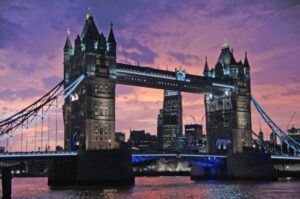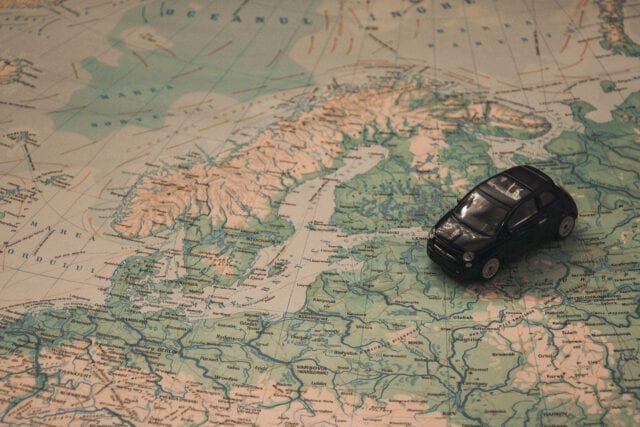Last summer, closures led to a sudden halt to travel. European cities, beaches, tourist attractions, small and large bars, family restaurants and chain stores were suddenly empty of people. This led to an incredible silence over the towns and villages.
Covid-19 is still far from being beaten, but viral testing and vaccination programs give hope that this summer will be much more lively than last year.
The EU is just days away from introducing its EU travel card - both in digital and paper form. We hope this will make it easier for you to welcome many travelers again.
All countries are already counting gains after losses
Spain is aiming to recoup about 70 percent of the tourists they had before the pandemic, and Italy reports that reservations have moved.
However, tourists from outside the EU will still face many obstacles at borders, regulations vary from country to country, and the continued demand for face masks and social distancing will again markedly undermine the travel habits of many.
EU countries agree they must avoid the fourth coronavirus wave - even if they hope to breathe life into tourism again.
'We need to be able to reconcile freedom of travel with the need for security,' concludes French Tourism Minister Jean-Baptiste Lemoyne.
Here is a summary of the rules for some of the most important tourist countries in Europe.
. France:
 The country has created a color map that explains the entry rules for different countries. Citizens of the EU and "green countries" such as Australia, Israel and New Zealand are exempting restrictions. From 1 July, France will also accept European health passports.
The country has created a color map that explains the entry rules for different countries. Citizens of the EU and "green countries" such as Australia, Israel and New Zealand are exempting restrictions. From 1 July, France will also accept European health passports.
From countries in orange zones, including Great Britain and most of Asia and Africa. Vaccinated people will have to show a recent negative test result. But they won't have to quarantine.
Orange zones unvaccinated must have exceptional reasons to travel and must be quarantined for seven days. Travelers from India and Brazil are not admitted at all.
The mask must be worn both outside and inside, but the curfew law will be repealed on June 30.
Read our next article: How do Poles relax?
Spain:
 On June 7, Spain lifted the rule requiring EU travelers to submit the latest PCR test.
On June 7, Spain lifted the rule requiring EU travelers to submit the latest PCR test.
Anyone who has been vaccinated can enter the country, regardless of where they come from. But wearing a face mask is still mandatory, even outdoors - if you can't stay at least 1,5 meters.
In the sun on the beach, wearing a face mask is compulsory.
Both Madrid and Barcelona have abolished curfews, and bars and restaurants can stay open until 01 and 24.
Italy:
 Travelers from the EU, UK and Israel must submit a negative test that is no older than 48 hours. At the same time with the mouse to fill out a health condition form, they do not have to be quarantined.
Travelers from the EU, UK and Israel must submit a negative test that is no older than 48 hours. At the same time with the mouse to fill out a health condition form, they do not have to be quarantined.
People from countries such as Australia, Thailand, Canada and the USA must test negative, be quarantined for 10 days, and then take a new test.
Travelers from Brazil, India, Bangladesh and Sri Lanka will not be admitted.
Masks are mandatory - but in July people don't have to wear them outside. The curfew from Grade 05 is still in force and only four people can sit at one table in bars and restaurants.
. Portugal:
 All travelers from EU countries, the Schengen area (including Norway) and the UK must present a PCR test less than 72 hours in advance to enter the country.
All travelers from EU countries, the Schengen area (including Norway) and the UK must present a PCR test less than 72 hours in advance to enter the country.
The same rules apply to travelers from Australia, Israel, New Zealand and China, among others. From some other countries you need to document that it is necessary to travel to Portugal.
Travelers from South Africa, Brazil and India must be secluded upon arrival.
Social distancing and the use of face masks are mandatory. On beaches and bathing areas, umbrellas must be at least three meters apart.
Portugal will join the health pass system on July 1.
Greece:
 The country hopes to recover about half of the tourists it had before the pandemic started. Travels from EU countries and the Schengen area are welcome, as well as travelers, among others from Canada, USA, Israel and China.
The country hopes to recover about half of the tourists it had before the pandemic started. Travels from EU countries and the Schengen area are welcome, as well as travelers, among others from Canada, USA, Israel and China.
But everyone has to fill out a health form and provide proof that they were vaccinated or underwent a PCR test no less than 72 hours ago. You can also provide a certificate that you are immune to the infection.
Masks are still mandatory both indoors and out.
Discos and indoor cultural events will be closed. Six people can sit at the table in restaurants.
Great Britain:
 This summer, travelers from large parts of the world will also find it difficult to enter the UK, which still has quarantine requirements and requirements to undergo costly testing.
This summer, travelers from large parts of the world will also find it difficult to enter the UK, which still has quarantine requirements and requirements to undergo costly testing.
The tourism industry is therefore primarily focused on the desire for adventures of its own citizens.
Citizens of several "green" countries, such as Australia, New Zealand and Iceland, can enter if they test negative.
Summer will show whether travelers can overcome the obstacles and rules that will continue to apply to varying degrees.


